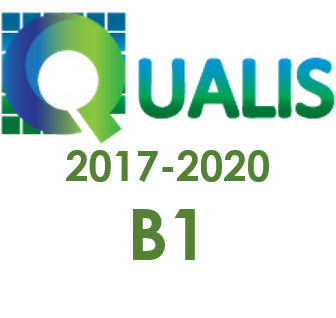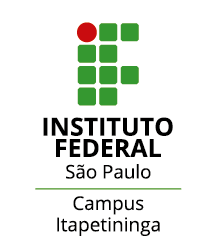Pedagogical practices for meaningful learning
possibilities based on multiple intelligences
Keywords:
Meaningful learning. Teaching performance. Pedagogical practices. Teaching Modeling.Abstract
The study aims to present a discussion about pedagogical practices that contribute to meaningful learning. The research methodology is of a qualitative nature, supported by a bibliographic review. The main findings show that meaningful learning occurs when the individual goes through the anchoring process and manages to make sense of the concepts approached through the already existing subsumers. As possibilities, when taking into account the multiple intelligences and the modeling in the pedagogical practice, the student's protagonism can be provided through the teacher's mediation, valuing the individual's experiences. In this context, the school environment acts as a motivator, providing meaningful learning.
Downloads
References
AUSUBEL, David Paul. Educational psychology: A cognitive view. Nova York, Holt, Rinehart and Winston Inc., 1968.
BASSANEZI, Rodney Carlos. Ensino-aprendizagem com Modelagem Matemática. Contexto: São Paulo, 2002.
BROUSSEAU, Guy. Introdução ao Estudo das situações didáticas. São Paulo: Ática, 2008.
CERQUEIRA, Teresa Cristina Siqueira. O professor em sala de aula: reflexão sobre os estilos de aprendizagem e a escuta sensível. Psic: Revista da Vetor Editora, v. 7, n. 1, p. 29-38, 2006. Disponível em: https://faculdadebarretos.com.br/wp-content/uploads/2015/11/ESTILOS-DE-APRENDIZAGEM-4.pdf. Acesso em: 10 ago. 2022.
CHRISTENSEN, Clayton M.; HORN, Michael B.; JOHNSON, Curtis W. Inovação na sala de aula: como a inovação disruptiva muda a forma de aprender. Tradução Rodrigo Sardenberg. Bookman Editora, 2012.
D’ AMBROSIO, Ubiratan - Educação matemática: Da prática à teoria. 23ª ed. Campinas, SP: Papirus, 2012.
FREGONEZE, Gisleine Bartolomei et al. Metodologia científica. Paraná: Editora e Distribuidora Educacional S.A, 2014.
GARDNER, Howard. Estruturas da mente: a teoria das inteligências múltiplas. Tradução de Sandra Costa. Porto Alegre: Artmed, 1994.
GARDNER, Howard. Inteligência: um conceito reformulado. Tradução de Adalgisa Campos da Silva. Rio de Janeiro: Objetiva, 2001.
GIL, Antonio Carlos. Como elaborar projetos de pesquisa. 6. ed. São Paulo: Atlas, 2019.
LAMBLÉM, Regina Litz; BITTAR, Marilena. Reflexões sobre a teoria das situações didáticas por duas pesquisadoras em diferentes estágios da vida acadêmica. Educação Matemática Pesquisa, [s. l.], v. 20, n. 2, p. 202–221, 2018. DOI 10.23925/1983-3156.2018v20i2p202-221. Disponível em: https://revistas.pucsp.br/index.php/emp/article/view/34803/pdf. Acesso em: 30 nov. 2022.
MARTINS, Eledir da Cruz; TAVARES, Dirce Encarnacion. A Escuta Sensível - Prática do docente interdisciplinar no ensino médio. Revista Interdisciplinaridade, São Paulo, n. 6, p. 18-27, 2015. Disponível em: https://revistas.pucsp.br/index.php/interdisciplinaridade/article/view/22624. Acesso em: 07 fev. 2022.
MOREIRA, Marco; MASINI, Elcie F. Salzano. Aprendizagem significativa: A teoria de David Ausubel. São Paulo: Moraes, 2001.
MOTTA-ROTH, Désirée.; HENDGES, Gabriela Rabuske. Produção textual na universidade. 1. ed. São Paulo: Parábola Editorial, 2010.
NETO, Manoel José de Miranda. Pesquisa para o planejamento - métodos & técnicas: roteiro para elaboração de projetos. 1. ed. Rio de Janeiro: Editor, 2005.
RAPOPORT, Andrea. Howard Gardner: teoria das inteligências múltiplas. In: SARMENTO, Dirléia Fanfa; RAPOPORT, Andrea; FOSSATTI, Paulo (org.). Psicologia e educação: perspectivas teóricas e implicações educacionais. Canoas, RS: Salles, 2008. p. 45-52.
SULEIMAN, Amal Rahif. Introdução ao estudo das situações didáticas: conteúdos e métodos de ensino. Educação Teoria e Prática, v. 45, n. 48, p. 200-206, 2015. DOI: 10.18675/1981-8106.vol25.n48.p200-206. Disponível em: https://www.periodicos.rc.biblioteca.unesp.br/index.php/educacao/article/view/8935. Acesso em: 17 ago. 2022.
TRAVASSOS, Luiz Carlos Panisset. Inteligências múltiplas. Revista de biologia e ciências da terra, v. 1, n. 2, p. 1-14, 2001. Disponível em: https://www.redalyc.org/pdf/500/50010205.pdf. Acesso em: 17 ago. 2022.
Downloads
Published
How to Cite
Issue
Section
License
Copyright (c) 2022 Revista Internacional de Pesquisa em Didática das Ciências e Matemática

This work is licensed under a Creative Commons Attribution-NonCommercial-ShareAlike 4.0 International License.




